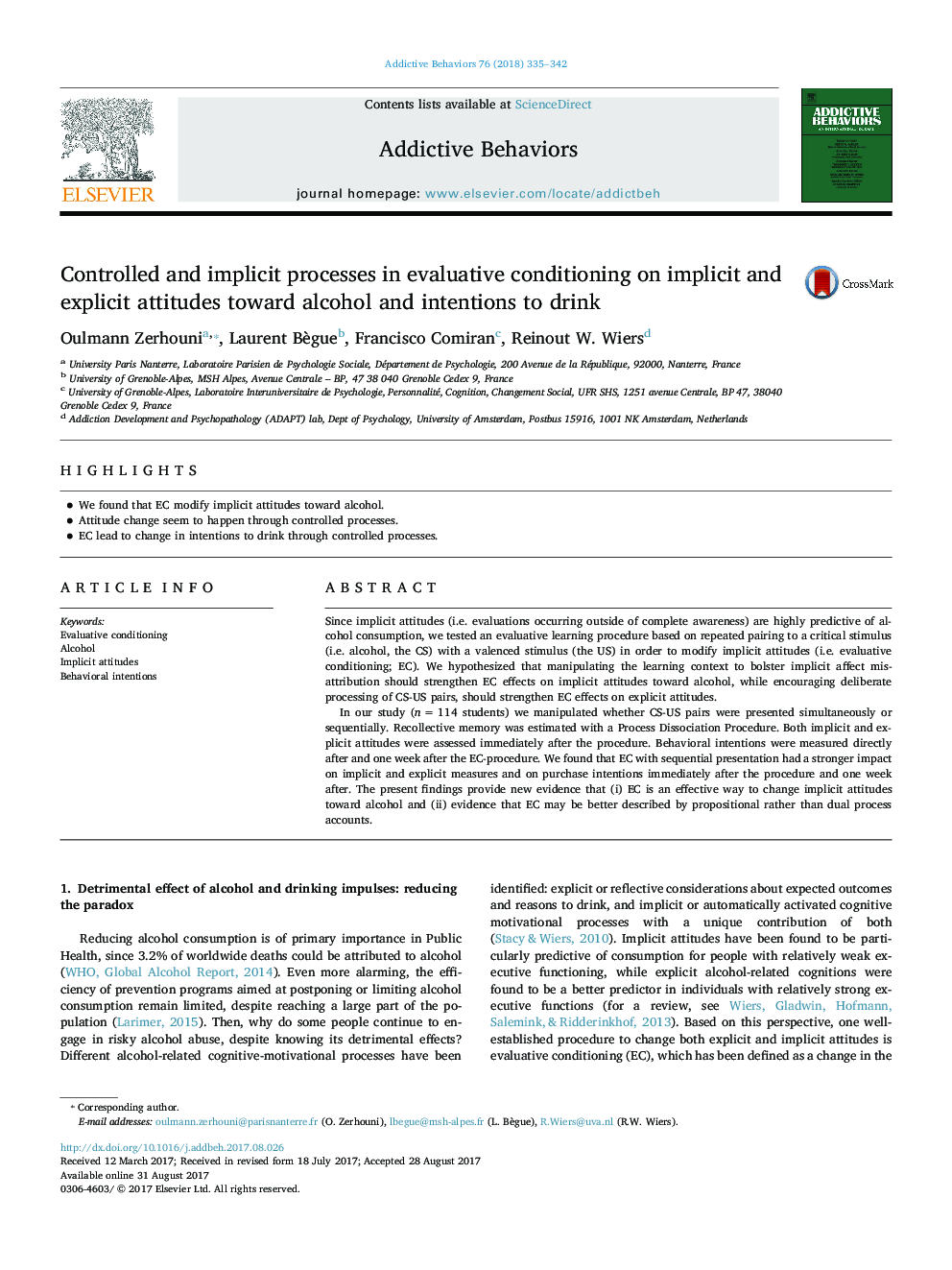| Article ID | Journal | Published Year | Pages | File Type |
|---|---|---|---|---|
| 5037643 | Addictive Behaviors | 2018 | 8 Pages |
â¢We found that EC modify implicit attitudes toward alcohol.â¢Attitude change seem to happen through controlled processes.â¢EC lead to change in intentions to drink through controlled processes.
Since implicit attitudes (i.e. evaluations occurring outside of complete awareness) are highly predictive of alcohol consumption, we tested an evaluative learning procedure based on repeated pairing to a critical stimulus (i.e. alcohol, the CS) with a valenced stimulus (the US) in order to modify implicit attitudes (i.e. evaluative conditioning; EC). We hypothesized that manipulating the learning context to bolster implicit affect misattribution should strengthen EC effects on implicit attitudes toward alcohol, while encouraging deliberate processing of CS-US pairs, should strengthen EC effects on explicit attitudes.In our study (n = 114 students) we manipulated whether CS-US pairs were presented simultaneously or sequentially. Recollective memory was estimated with a Process Dissociation Procedure. Both implicit and explicit attitudes were assessed immediately after the procedure. Behavioral intentions were measured directly after and one week after the EC-procedure. We found that EC with sequential presentation had a stronger impact on implicit and explicit measures and on purchase intentions immediately after the procedure and one week after. The present findings provide new evidence that (i) EC is an effective way to change implicit attitudes toward alcohol and (ii) evidence that EC may be better described by propositional rather than dual process accounts.
